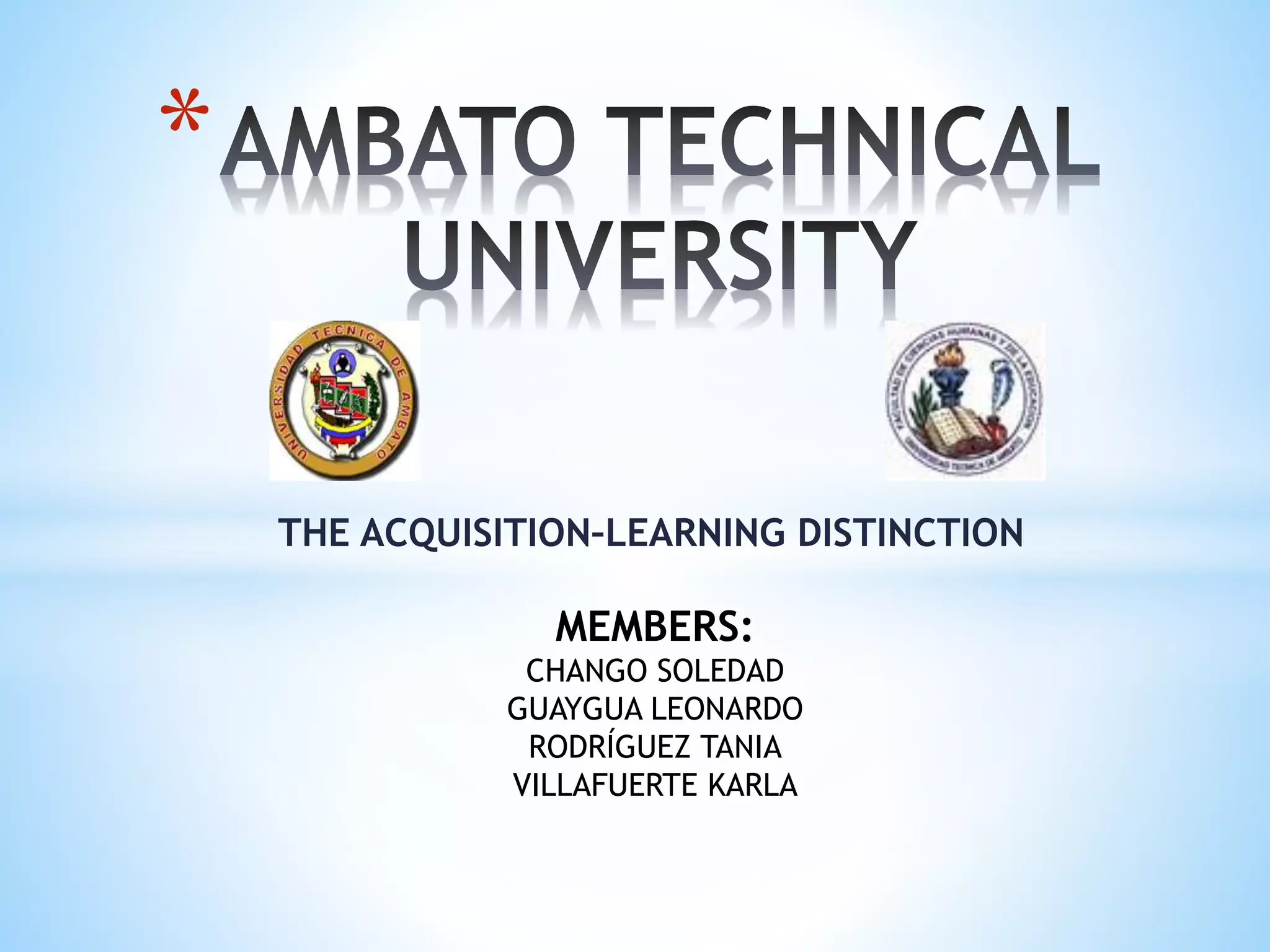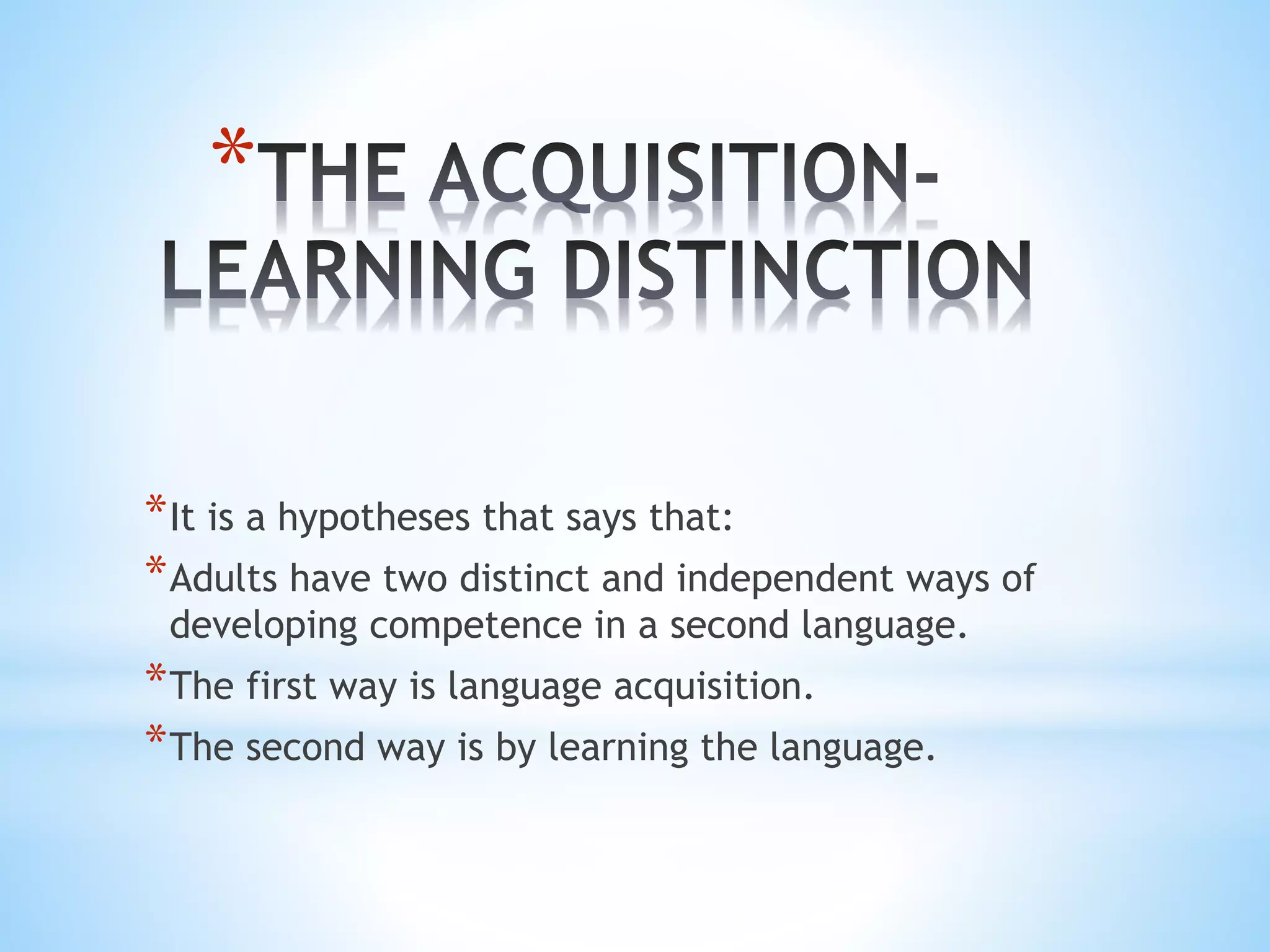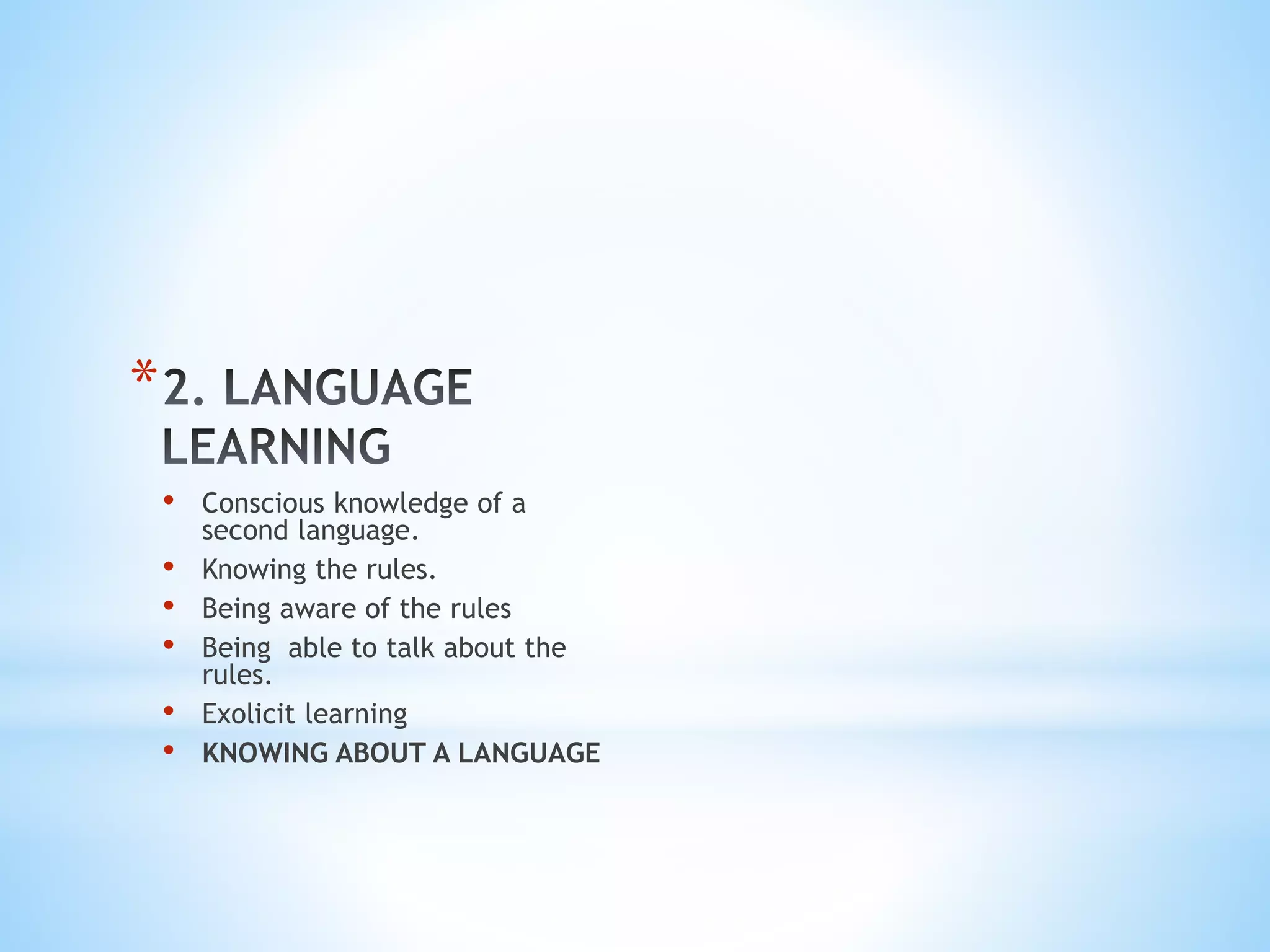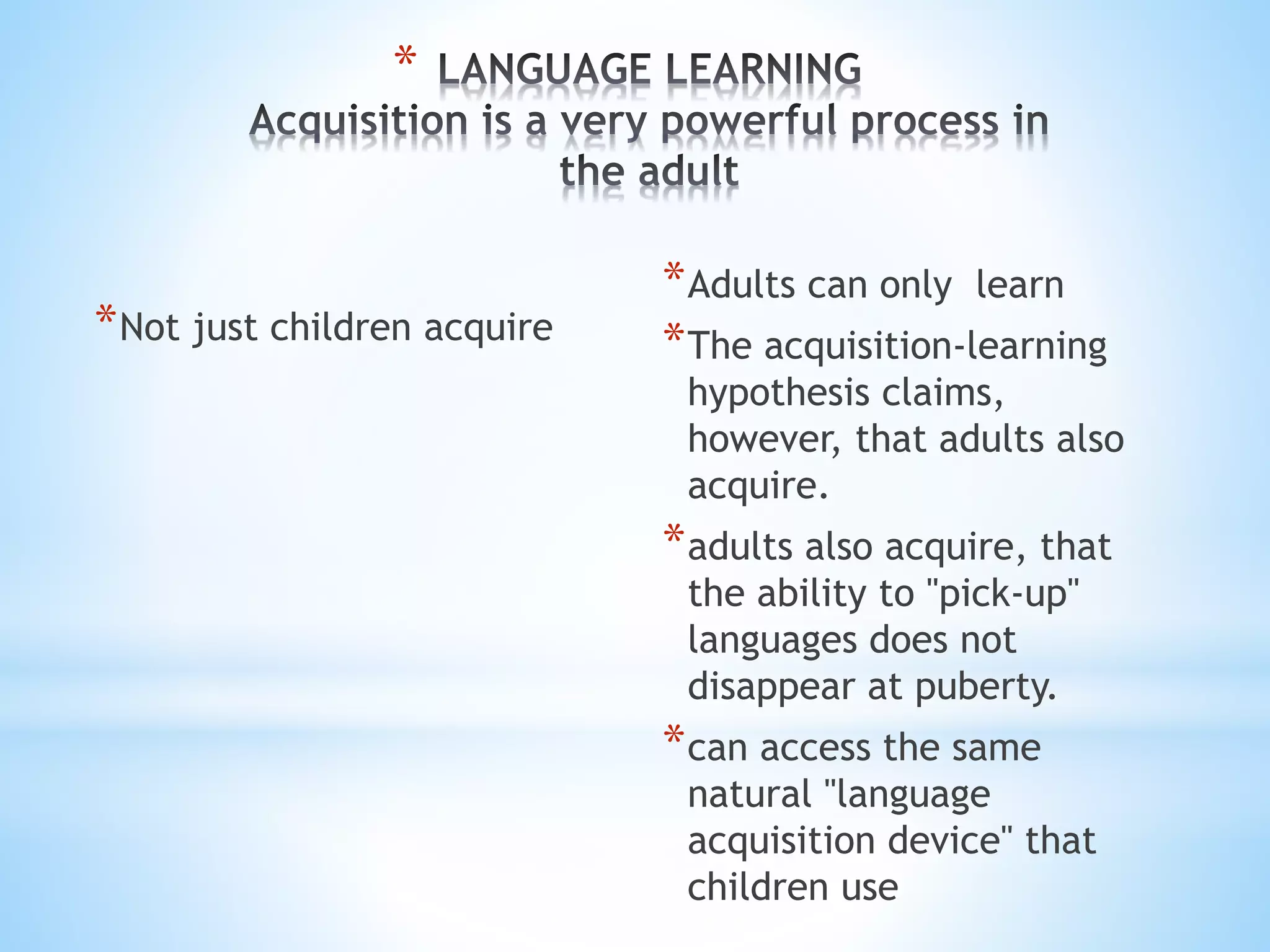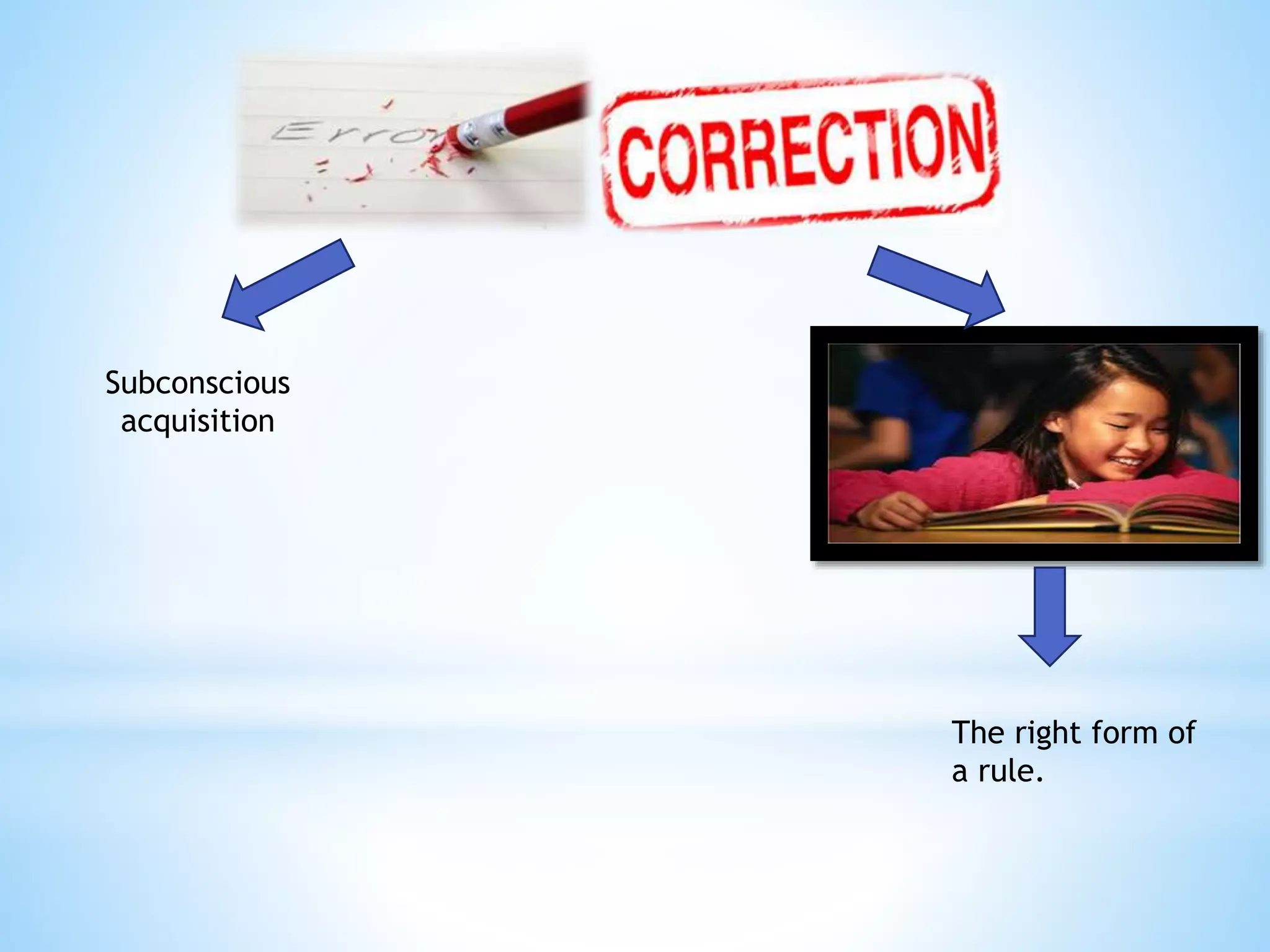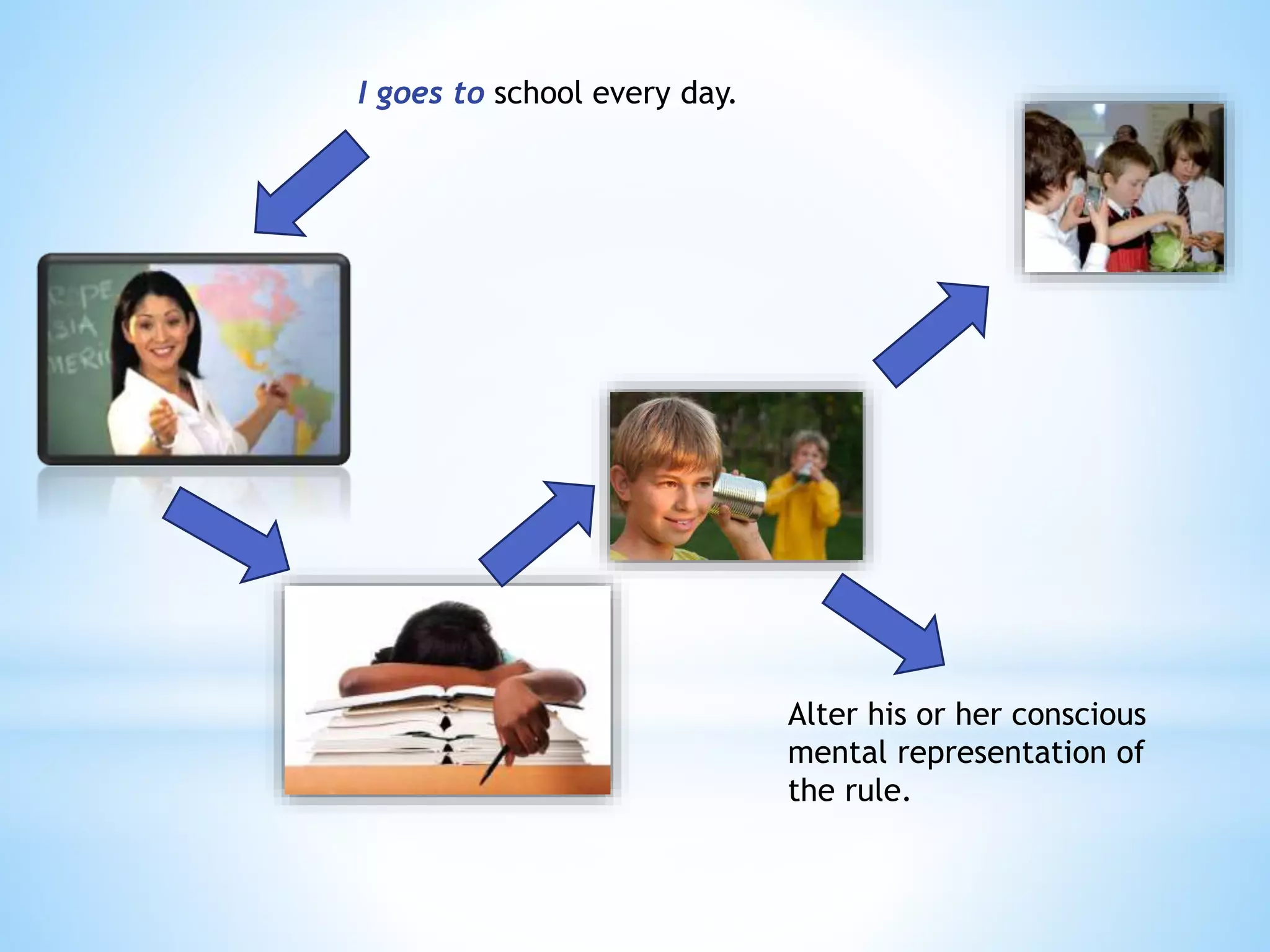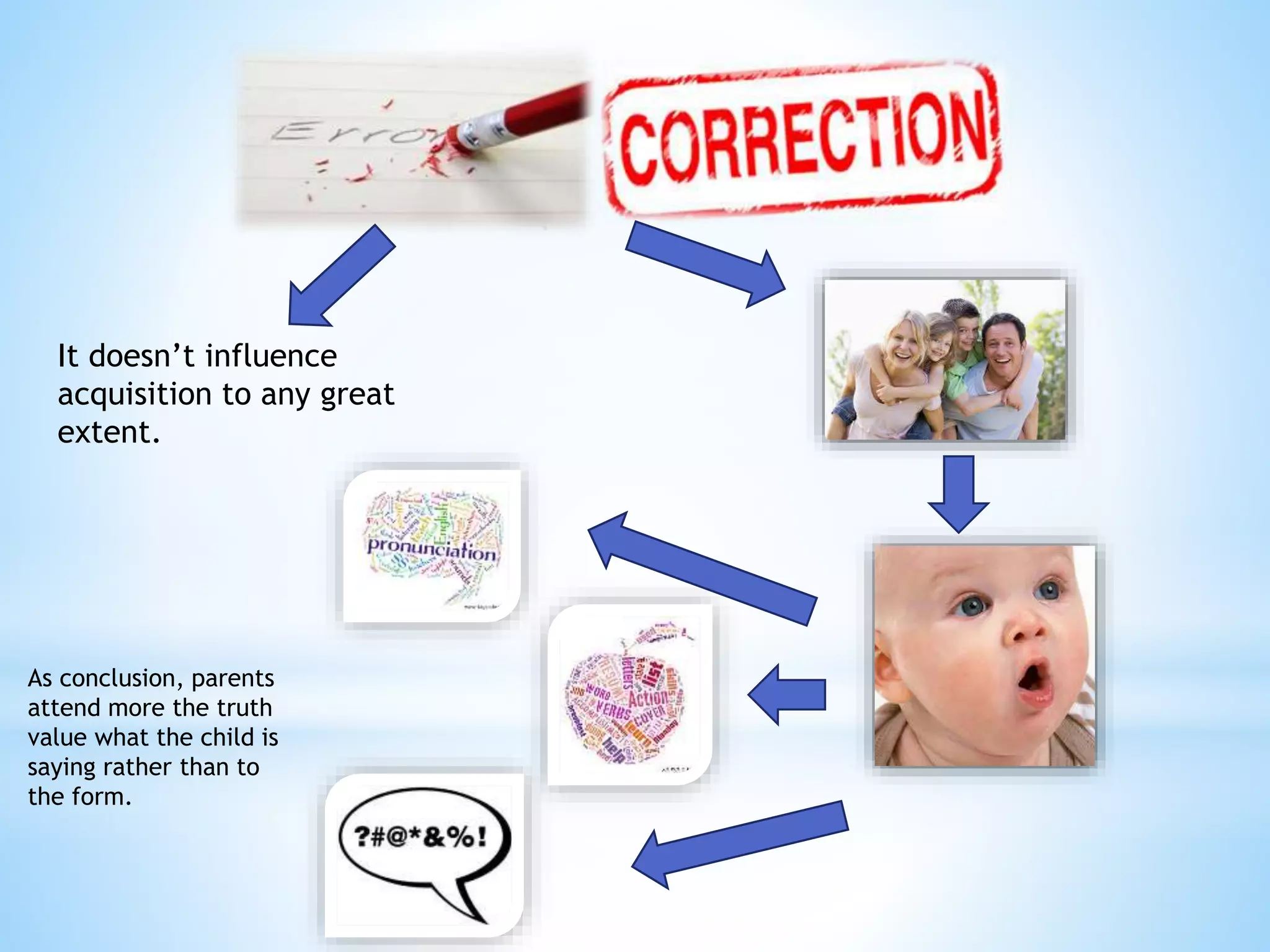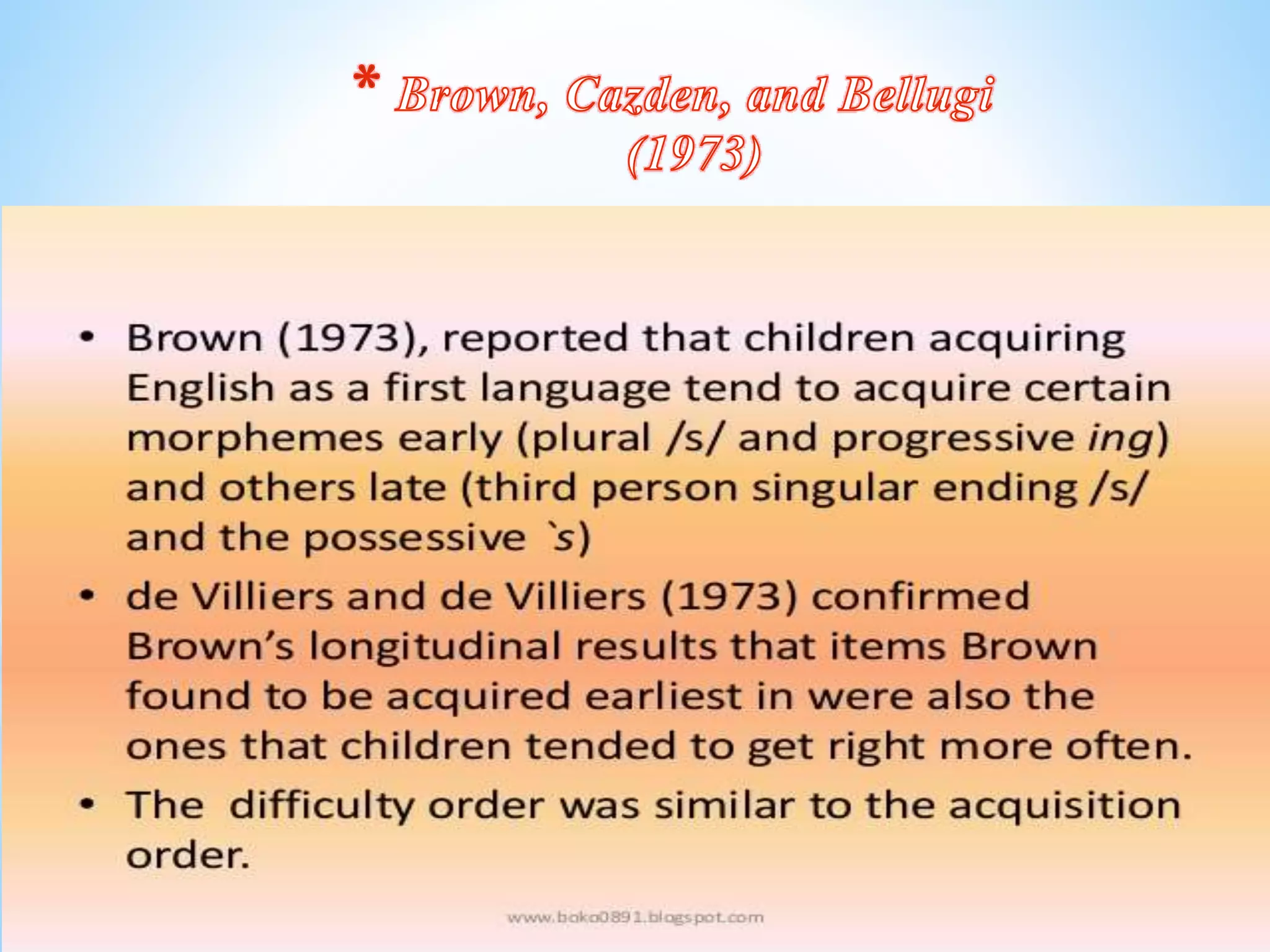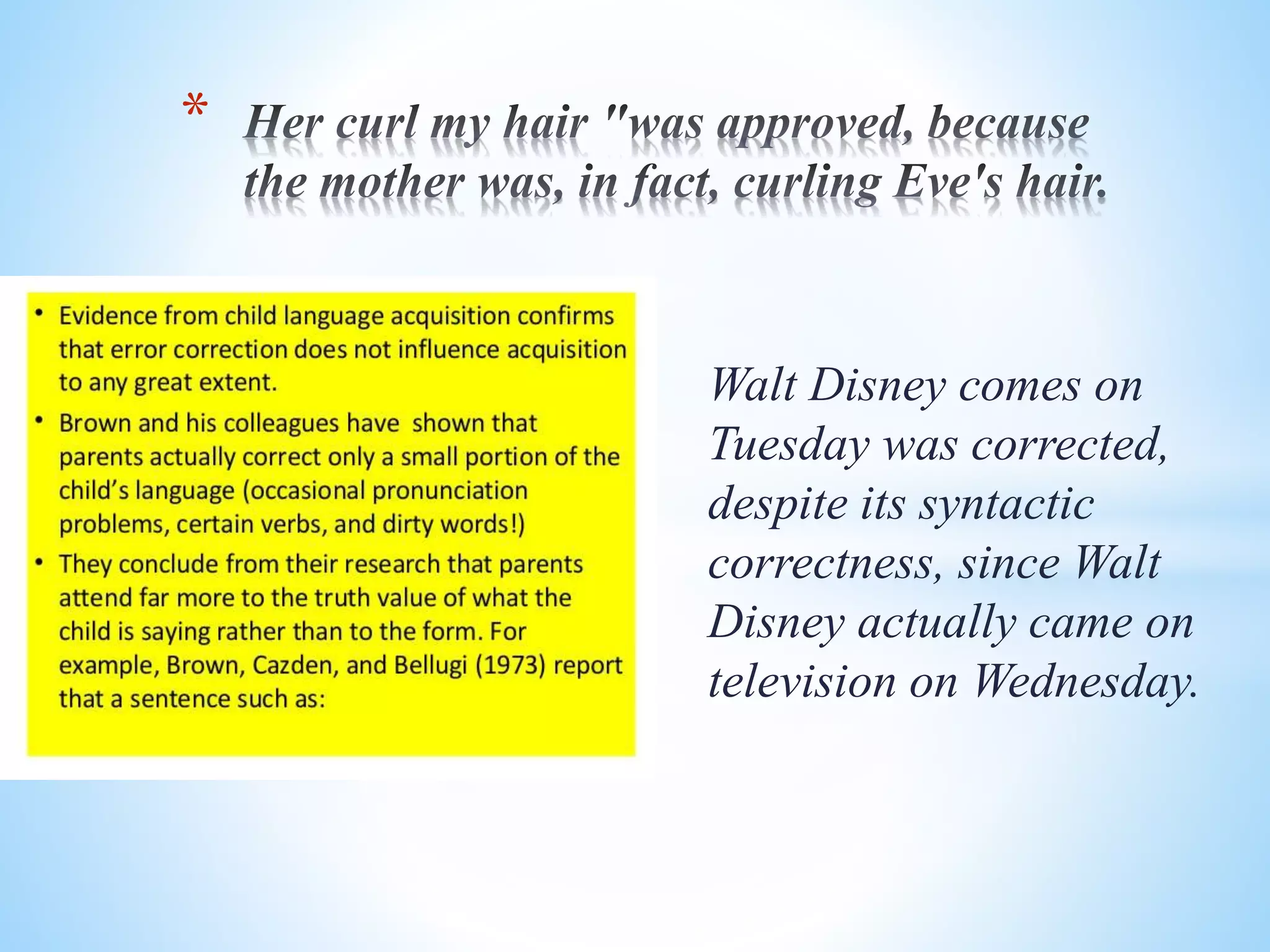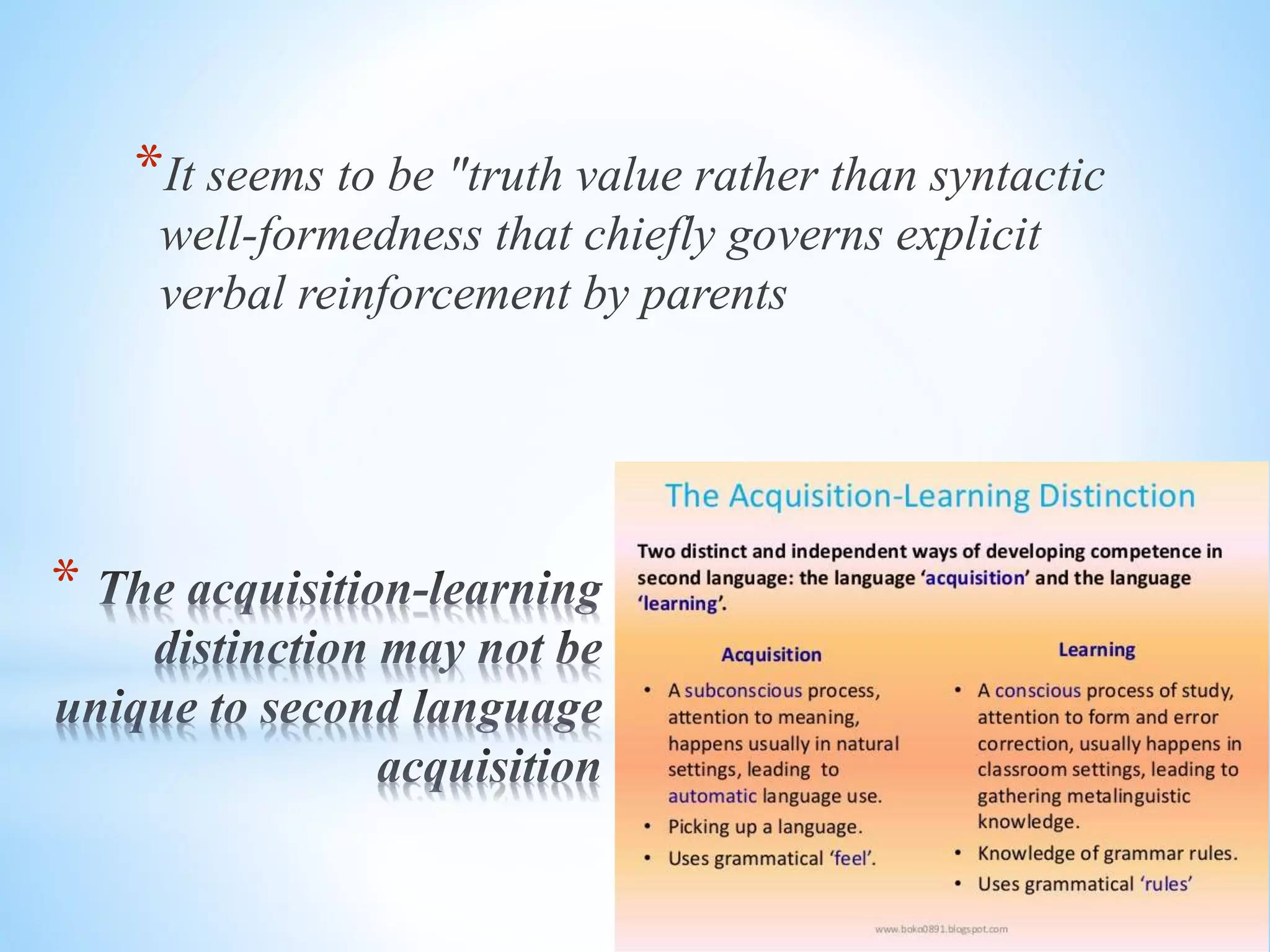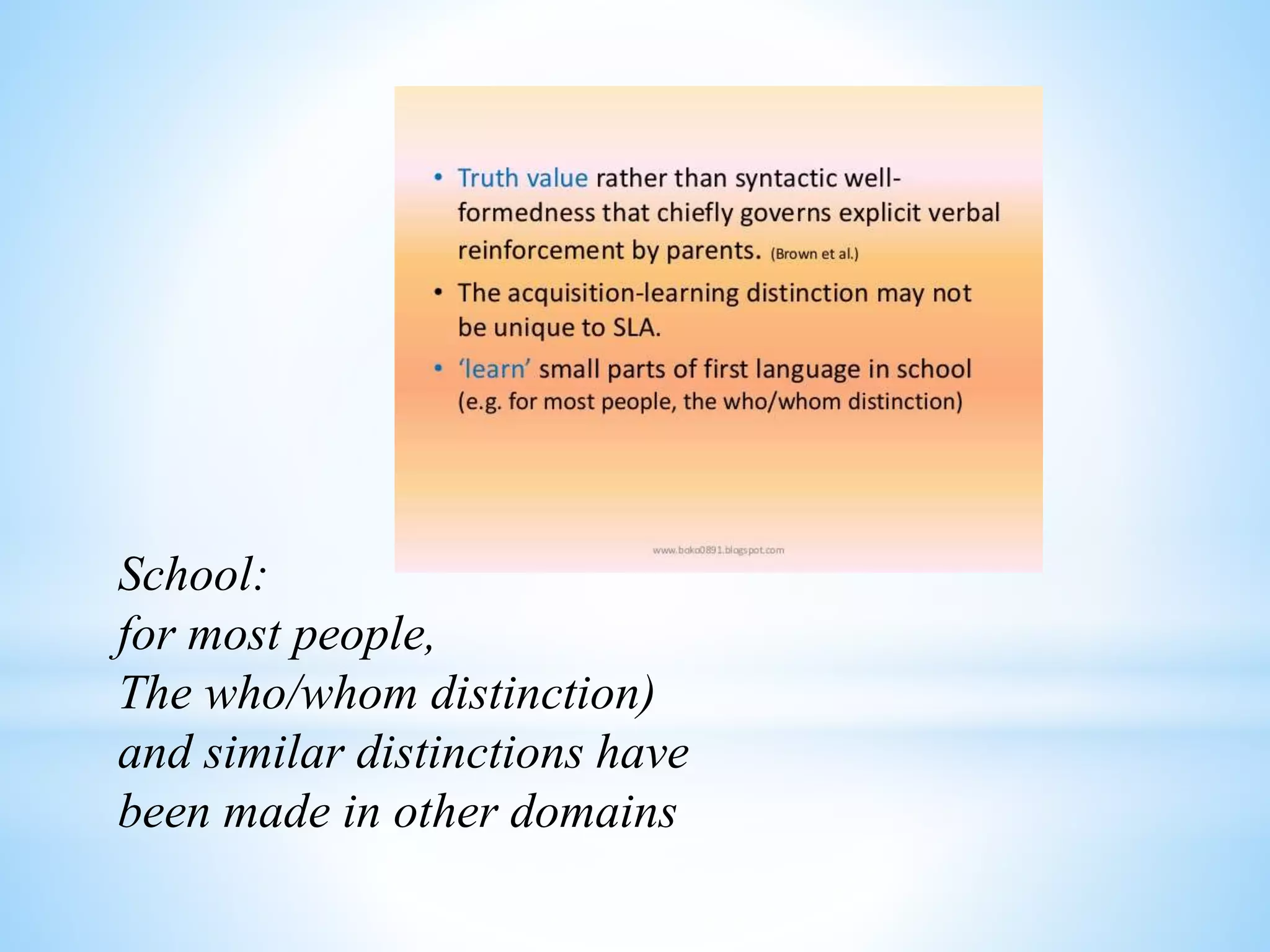The document discusses the acquisition-learning distinction hypothesis, which proposes that adults have two ways to develop competence in a second language:
1) Language acquisition, which is a subconscious process similar to how children develop their first language ability. The result is acquired competence.
2) Learning a language, which involves a conscious knowledge of rules and being able to explicitly talk about the rules.
It claims that while children acquire language, adults can both acquire and learn a new language subconsciously like children, not just consciously learn like was previously thought.
